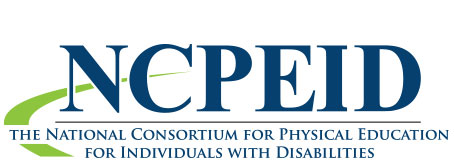Why a National Standard for Adapted Physical Education?The Individuals with Disabilities Education Improvement Act of 2004 (P.L. 101-476; more commonly referred to as IDEA) mandates free and appropriate public education services for all children with disabilities. This federal law, and all of its prior iterations from P.L. 94-142 enacted in 1975 to the current IDEA legislation, state that these services must be provided by “qualified professionals.” Physical education, singled out as a core component of special education by IDEA, must also be provided by such an individual. Although physical education, specially designed if necessary (i.e., adapted physical education), was specifically addressed at the federal level, the State Educational Agencies are given the responsibility to interpret the term “qualified professionals” within their respective states. This has resulted in a range of approaches to developing new or amending existing certifications and/or licensing qualifications. Unlike other special education areas, however, most states do not have formal certifications for teachers of adapted physical education. While approximately 12 states have defined an endorsement or certification in adapted physical education, 38 states and eight territories have not defined the qualifications teachers need to provide adapted physical education services to their students with disabilities. In many states without specific adapted physical education certifications, the general physical educators responsible for teaching students with disabilities are often underprepared, which negatively impacts the students’ educational experiences. For additional information on the history of the APENS and the NCPEID’s role in the APENS development see APENS History. Who Recognizes and/or Endorses the Adapted Physical Education National Standards? APENS is currently recognized and endorsed by a variety of national organizations (see list below). Additionally, multiple states have formally recognized the APENS for their value within teacher education and recognize the CAPE certification for teachers (e.g., Alaska, Michigan, South Carolina, etc.).
The brief descriptions of the 15 standards can be found here. To see the standards in full, you must acquire the Adapted Physical Education National Standards Guide. APENS Alignment with Other National StandardsThe National Board Professional Teaching Standards (NBPTS) is an organization nationally recognized for their peer-reviewed performance-based assessment process of determining accomplished teachers. It is a respected credential in many States throughout the United States of America. The NBPTS identifies 16 disciplines with specific standards for each area. Physical education is the discipline that aligns closely with APENS. The comparison between the two sets of standards relates the shared rigor needed to achieve the high level of knowledge and performance that awards professionals with the recognition. You can learn more about the alignment here. Structure of the APENSThe content in each APENS standard area was divided into five levels. Click here to learn more. |
